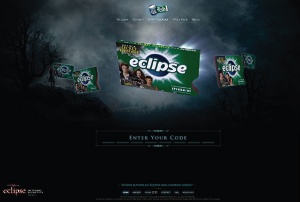Who Can Be A Registered Agent For A Corporation
Finding an agent
Getting an agent can open doors to new clients for freelance illustrators and take your career to the next level. It's often difficult for an illustrator starting out on their own to gain access to the most desirable clients, and agents are there to promote you and your work to the best in the industry. Illustrator Stanley Chow explains: "Without CIA [Central Illustration Agency] I would never have known how to get an advertising commission or how much to charge."

Not only can agents get you better jobs, they also negotiate higher fees. "There are some jobs you think you'd be happy to receive a couple of hundred pounds for, but your agent will tell you that job is actually worth a few thousand pounds," says Chow.
No wonder then that many illustrators are keen to secure some kind of representation. But it can be tough to grab an agent's attention amongst the thousands of other artist submissions. Ironically, the better you are at self-promotion the higher your chances of success. Sarah Beetson, who is represented by Illustration Ltd but also helps select new artists, stresses the importance of being web savy. "Illustrators that don't have a website, blog or images of their work online are not really right for us to represent, as so much of agency promotion is done to great success online," she explains.
Artists should aim to have a portfolio containing a wide range of work with a strong unique style and avoid imitating others or following stylistic trends. Most agents prefer to take on illustrators who already have some commercial work experience, however Charlotte Dowson from NB Illustration suggests artists can use mock-ups if they do not have many examples, to demonstrate how they see their work fitting in the commercial world.
It is important to think about the presentation of your submission, as the agency will be judging your professionalism by it. French illustration agent Valrie Oualid says: "It's very hard to have a good reputation as an agent, and this depends on the artists you choose."
Make sure your images are of good quality but not too big – 1MB maximum via email. Alternatively, a link to a website or blog is acceptable, but be sure to include a succinct introduction so you don't end up in the junk mail folder. If you are contacted then respond promptly, and use an auto-response if you are going to be incommunicado for any length of time. Many talented artists miss out just because they don't get the basics right.
A bit of research will prove beneficial when choosing which agencies to approach. Many have their own method and identity – some are akin to supermarkets and have hundreds of illustrators on their books, while other boutique agencies represent little more than a dozen or so artists. Assess which clients they tend to get, as this will indicate what direction the agency is likely to take you and give you an idea as to which will suit your needs.
Some agencies have a wide range of clients whilst others may focus on a few sectors. Check out which other artists the agency already represents – most won't want to represent new artists that are too similar to those already on their books. This is in your best interests, after all you wouldn't want to be competing for the same job within the same agency. It could prove difficult for you to get work and you may end up tied into an agreement that is of little benefit to your career. This is worth bearing in mind as some of the very large agencies sometimes go for quantity over quality. It's a good idea to approach different artists that are already represented by an agency you are interested in and ask them of their experiences.

Good agents will make a long-term commitment to the artists they represent by investing in a well-coordinated promotional strategy. Targeted promotions will ensure an artist's work is viewed by the right people and generate commissions. Alicja McCarthy at CIA works hard to give the agency's artists maximum exposure and generate interest in their work. "We use a lot of social media tools such as Twitter, Facebook and Tumblr," McCarthy explains. "The CIA Shop was actually a huge catalyst in our get-up-and-go approach to social ventures. We've always hosted annual exhibitions, but they were usually aimed at our clients and not the general public or fans. Now we use various social media to engage with a huge range of people globally."
The agency employs other techniques too, including special in-house projects such as the annual calendar and the award-winning book License To Inspire. McCarthy says: "Other PR strategies include the great relationships we have developed with the design press. Talks are also good, especially at a university level, and we engage in some forms of advertising too."
Agents often enter their illustrators into awards and competitions and get their work seen in annuals and other publications, such as Contact and 3x3, or online portfolio sites.
Approaches to business vary. Oualid works solo, and claims that her proactive style ensures the right people see her artists' work. She has regular personal meetings with art buyers, art directors, and creative directors, enabling her to build excellent relationships. One of the benefits is that, with a very small roster of artists, she is able to present all of them during a meeting and not just a few, as larger agencies do. She claims to take a very personal approach and works in close collaboration with her artists. "If one of my artists has an idea for a specific project, we discuss together which clients could be interested and I canvass the client on the artists' behalf," she says. "We are associates and it is really important that we communicate clearly to ensure we are going in the same direction."

Artists are usually expected to maximise the promotional opportunities their agency offers. At the same time, keep your agent informed of any new work you've got, merchandise you're selling or exhibitions your images are in. Your agent can create extra buzz around this. Illustrator Gemma Correll, who is with NB Illustration, explains: "I try to reiterate and cross promote everything. For example, if NB posts about my work on Facebook, I'll share it on my illustration page."
Agents generally charge a fee for promotions, but this should be reflective of the commission rates. For example if your agent charges 25 per cent commission then they should be paying 25 per cent of your promotion costs. The cut an agency typically takes is generally between 20 and 35 per cent, which can seem a lot but, as Chow points out: "If you know an agency is making money out of you, then you know you will be making money too. There's no need to be suspicious of them exploiting you."
This is a really important point as a successful relationship with your agent is built on trust. Agents and illustrators alike stress the importance of effective communication. Remember that it is a team effort – the illustrator must work as hard for the agent as the agent does for them, says NB Illustration artist Kerry Lemon. "Mutual respect and manners are essential, as is honesty. It is important to be up front if you are having any issues such as struggling to meet a deadline," she says.
When problems arise, let your agent know quickly. McCarthy adds: "If there is great communication, respect and understanding between artist and agency, together you make the perfect team."

However, it is possible to sustain a successful freelance career without an agent. Testament to this is illustrator and Chairman of the Association of Illustrators (AOI) Rod Hunt, creator of the Top Gear book Where's Stig? He represents himself in the UK and Europe and is an expert at self-promotion, spending 10 per cent of his business turnover on promotion. If you have the skills and know-how then this is a more attractive option than signing with an agent. He explains: "No one knows my work, and where I want to take it, better than me. I enjoy the business side of things and have educated myself on all aspects of pricing, contracts, negotiation and markets."
Representing yourself has its downsides: dealing with enquires, providing quotes, negotiating fees, usage and rights takes time out of the day – especially tricky if you are on a deadline at the same time. This is doubly difficult when working with overseas clients, as time zone, cultural and language differences can present further challenges. Having an agent take care of your affairs abroad makes sense and can be worth the commission. Find the right representation, and your career can really take flight.
Related articles
Who Can Be A Registered Agent For A Corporation
Source: https://www.creativebloq.com/computer-arts/finding-agent-11118442
Posted by: caldwellguttend1964.blogspot.com

0 Response to "Who Can Be A Registered Agent For A Corporation"
Post a Comment